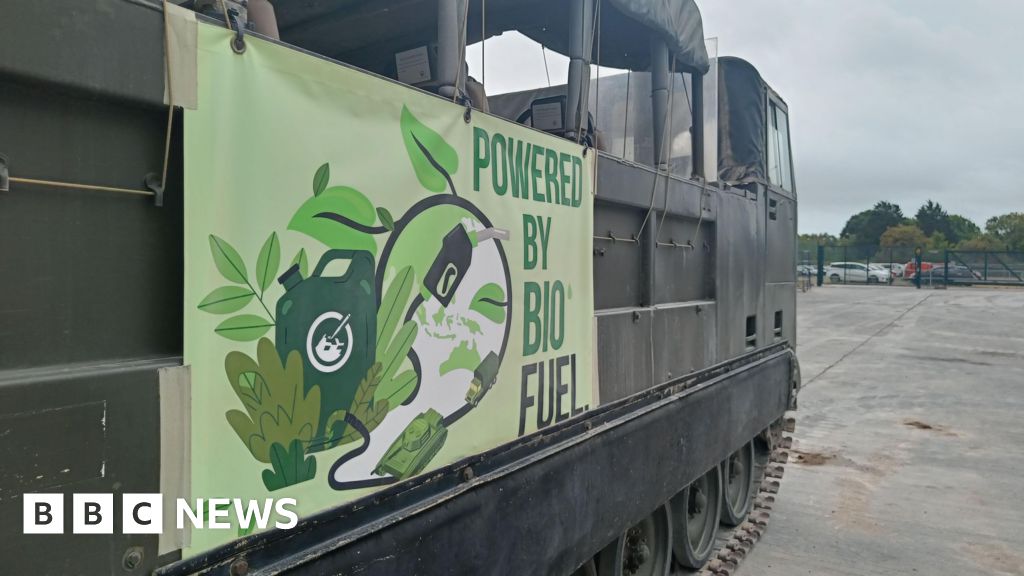A tank museum has been powering five of its vehicles using a diesel alternative based on vegetable oils.
Throughout the season, The Tank Museum in Dorset offers rides to the public on their Cold War M548 troop carriers, which began construction around the time of the Vietnam War.
This year it has been trialling the green initiative in a bid to reduce its carbon footprint by significantly reducing the vehicle’s exhaust emissions.
Workshop manager Duncan Masters said it had been his “aspiration” to have the fleet running on alternative fuels since he joined the museum in 2024.
Their original projections foresaw trials in the summer of 2026, with a permanent change forecast for 2027, but the museum is two years ahead of schedule.
Part of the appeal of the biofuel is that the engines inside the M548s require no modification to ingest it.
“We’re really lucky in this world of military vehicles that when most of them were designed, they were deemed to be multi-fuel engines, so would run on anything you put in them, within reason,” said Mr Masters.
“A few years ago, when we had high oil prices, people were just pouring chip fat in their jeeps.
“This is exactly the same process – it just has a few extra chemicals in it that take the aromas out.”
The museum said it was looking to expand the fleet of reduced-emission armoured vehicles, the primary concern being around the older models whose engines may be less receptive to fuel alternatives.
By their standards, the summer trial has been a success, with the renewable diesel reducing a tank’s emissions by 70% on average.
Since the M548 troop carriers put in the highest mileage at the museum – over 20 litres of fuel per day – the switch in fuel could have a significant environmental impact.
The tank rides at the museum end on Tuesday 2 September.
